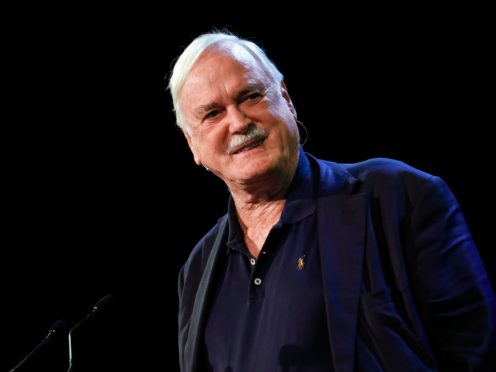John Cleese to explore cancel culture in a new series for Channel 4, it has been announced.
The comedian and writer, 81 – best known for comedy classics Fawlty Towers and Monty Python – will “set forth into the minefield of cancel culture to explore why a new ‘woke’ generation is trying to rewrite the rules on what can and can’t be said”, according to the channel.
The term “cancel culture” has gained popularity in recent years and is the phenomenon of calling out, or “cancelling” people or brands for perceived offensive behaviour.
In the series, called John Cleese: Cancel Me, he will ask whether it is possible to make good comedy without someone taking offence, and will meet some famous faces who have found themselves on the receiving end of cancel culture.

He will also meet people who are doing the cancelling, to investigate what is driving them.
Cleese, who rose to fame in the 1970s as a co-founder of the surrealist comedy group Monty Python, alongside Graham Chapman, Terry Gilliam, Eric Idle, Terry Jones and Sir Michael Palin, has previously criticised the “stifling” effect of political correctness on creativity – saying there is no such thing as a “woke joke”.
Last year, he blasted the BBC when UKTV, which is BBC-owned, temporarily removed one episode of Fawlty Towers over “racial slurs” and “outdated language”.
Addressing his new series, he said: “I’m delighted to have a chance to find out, on camera, about all the aspects of so-called Political Correctness.
“There’s so much I really don’t understand, like: how the impeccable idea of ‘Let’s all be kind to people’ has been developed in some cases ad absurdum.
“I want to bring the various reasonings right out in the open so that people can be clearer in their minds what they agree with, what they don’t agree with, and what they still can’t make their mind up about.”
Ian Katz, chief content officer of Channel 4, added: “The argument over what it’s OK to say and what isn’t is one of the thorniest issues of our age and there are few people better equipped to stride into it than John, a comic legend who combines genuine curiosity with a healthy disregard for what anyone thinks of him.”
A string of shows have removed scenes or whole episodes because of racist or sexist content.
Little Britain was dropped from Netflix, BBC iPlayer and BritBox following criticism over the use of blackface.
A number of other shows, including 30 Rock, Scrubs and the US version of The Office have also been edited because of the use of blackface.
Films including Gone With The Wind, Flash Gordon and the animated version of Dumbo were given content warnings from Sky Cinema, telling viewers they contain “outdated attitudes, language and cultural depictions which may cause offence today”.
In 2019, Cleese was criticised for saying London is “not really an English city any more”.
He was accused of racism online, while mayor of London Sadiq Khan said the comments made him sound like his character from Fawlty Towers.
He defended his comments, saying they were “culturalist” rather than racist.
